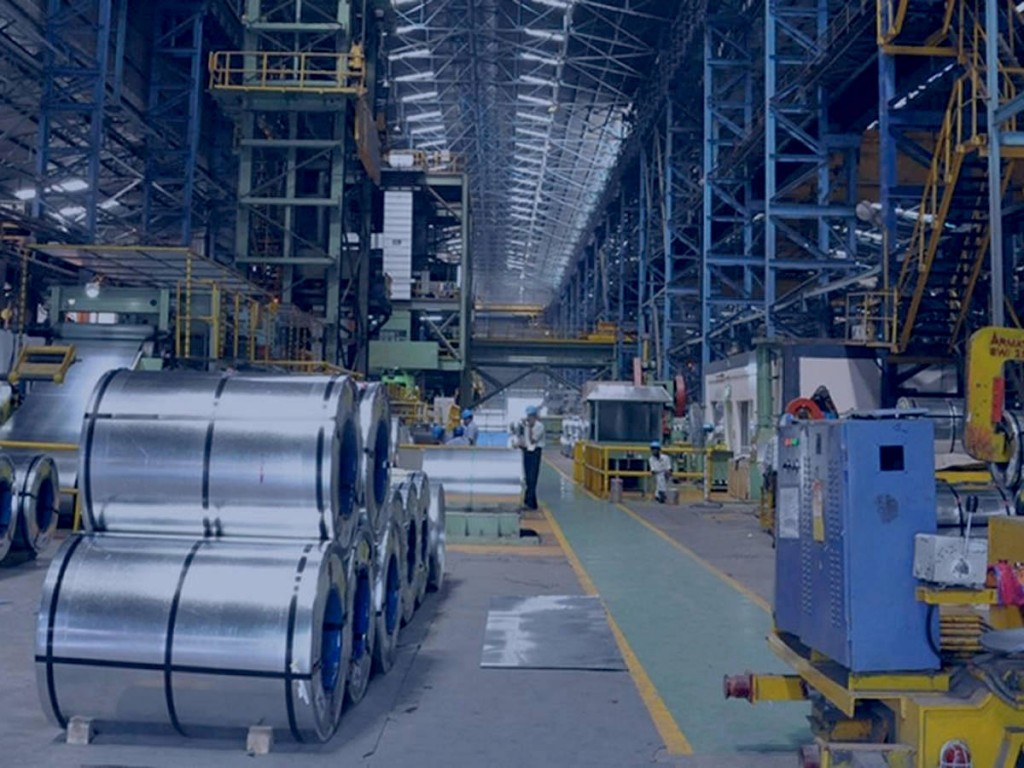Coronavirus boosts Indian steel export prospects as China chokes
Steel mills in India are gearing up for an increase in demand from overseas buyers as the coronavirus outbreak chokes supplies from China.
China is the world’s largest steelmaker and accounts for more than half of global output. The virus crisis has crippled demand and led to record high inventories of steel in the country, as migrant workers, who typically staff construction sites or drive trucks, are unable to return to work due to quarantine measures and movement restrictions.
“There are opportunities in certain markets where China is not able to supply because Chinese ports are blocked and movement to the ports is also pretty impacted,” Jayant Acharya, director for marketing at JSW Steel Ltd., said by phone from Mumbai. Indian steelmakers could gain business from this month onward as supply gaps emerge in Southeast Asia, which is a big market for China, and the Middle East, he said.

Indian mills have been shipping out more steel this year as domestic demand remains sluggish amid the slowest economic expansion in more than six years. India’s exports of finished steel jumped 40% in the 10 months to January to 7.2 million tons, according to the Steel Ministry.
The virus outbreak “provides Indian steel producers an opportunity to cater to the traditional Chinese markets where Indian steel mills are also present,” Ranjan Dhar, chief marketing officer at ArcelorMittal Nippon Steel India Ltd., said in an emailed reply to queries. “It is important to note that voyage time from India to these markets is equal or better than China.”
India’s biggest export markets in January were Vietnam, Italy, Nepal, United Arab Emirates and Saudi Arabia. The country is the second-largest steelmaker after China.
“Any exports will only be after meeting the domestic demand in full,” Dhar said. “Not only steel exports, even auto component exports from India can be an answer to supply disruptions from China.”
Indian steelmakers are also expecting weaker imports from China, South Korea and Japan as these countries have been affected by the virus, leading them to increase prices in the South Asian country despite sluggish demand, Jayanta Roy, senior vice president at ICRA Ltd., the local unit of Moody’s Investors Service, said by phone.
“Companies would first try to maximize their sales in the domestic market if prices are better here and only then willthey look for exports to ensure a decent capacity utilization,” he said. “It is little unclear at present how long this window is going to be open for them, as one doesn’t really know how long the coronavirus impact is going to stay.”
Similar Stories
December CNBC/NRF retail monitor results show strong growth boosted by final Thanksgiving weekend days
Retail sales jumped strongly in December, boosted in part by two busy holiday shopping days during Thanksgiving weekend falling in the final month of the year, according to the CNBC/NRF…
View ArticleNAW presents Dirk Van Dongen Lifetime Achievement Award to Bergman, CEO of Henry Schein, Inc.
At the 2025 NAW Executive Summit Gala on January 28 in Washington, D.C.
View Article
St. Louis region’s chemical industry welcomes new investment
View Article
Navigating compliance: Adapting to changing Customs regulations in global supply chains
View Article
December 2024 U.S. Transportation Sector Unemployment (4.3%) Was the Same As the December 2023 Level (4.3%) And Above the Pre-Pandemic December 2019 Level (2.8%)
View ArticleDP World appoints Jason Haith as Vice President of Freight Forwarding for U.S. and Mexico
DP World, a global leader in logistics and supply chain solutions, has announced the appointment of Jason Haith as Vice President, Commercial Freight Forwarding – U.S. and Mexico, effective immediately.…
View ArticleGet the most up-to-date trending news!
SubscribeIndustry updates and weekly newsletter direct to your inbox!





